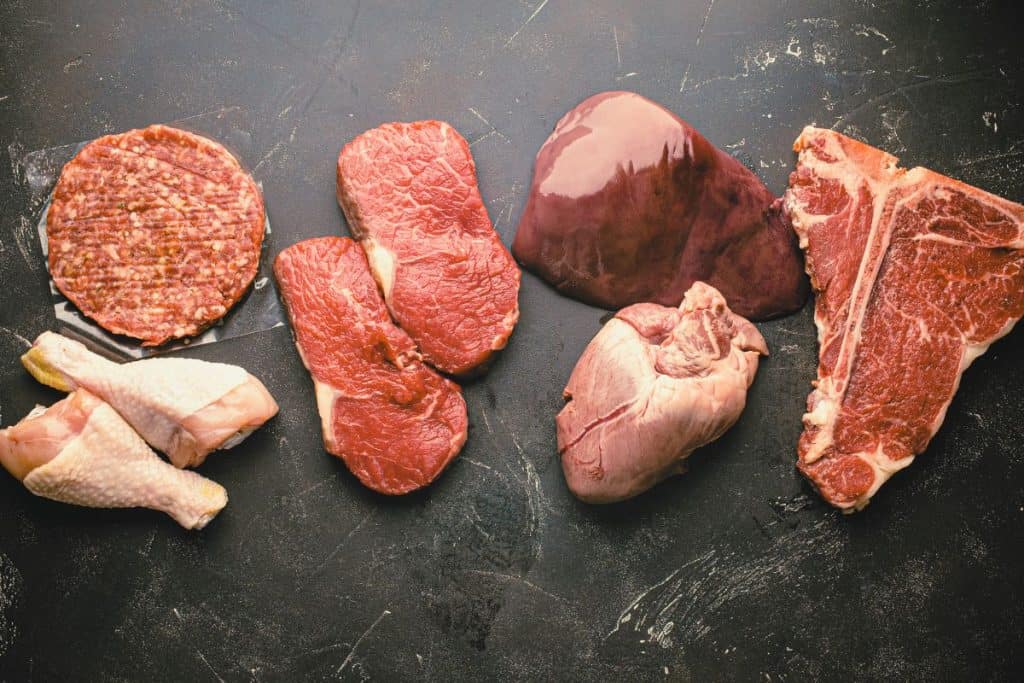From Strong Bones to Sharp Minds: The Role of Protein-Rich Foods in Aging Gracefully
The Role of Protein in Muscle and Brain Health –
First off I want to take a minute and remind anybody and everybody that I am not, in fact, a nutritionist. I am, however, heading into my 40’s with a keen awareness of the inevitability of menopause right around the corner and a personal history experiencing the close cause & effect relationship between diet & hormonal health!
With that out of the way – lets get into it!
Why Protein Matters as We Age
Protein plays a crucial role in preventing muscle loss and protecting brain health and function as we age. But this raises a whole lot of questions:
- How much protein do we need?
- Where should our protein come from?
- Is there a difference between plant and animal protein?
- What happens if we eat too much or too little protein?
These can feel like overwhelming questions when every other headline seems to contradict the last one. Understanding the basics can help us make informed decisions about our diet in spite of whatever clickbait article crosses our paths in a day.
The Connection Between Protein and Muscle Maintenance
The link between protein intake and muscle formation or maintenance is pretty well established. Research indicates a strong relationship between dietary protein and our ability to preserve muscle mass, especially as we age. Muscle protein breakdown accelerates after menopause, making it harder to maintain strength. This means we must be intentional about both consuming enough protein and engaging in strength training to support muscle health.
Protein Alone Isn’t Enough: The Importance of Strength Training
Eating protein alone isn’t sufficient to maintain or build muscle. The best results come from combining a high-protein diet with regular strength or resistance training. Interestingly, strength training has also been linked to improved cognitive function, suggesting a deeper connection between physical and brain health. While the exact mechanisms are still being studied, researchers consistently observe that muscle-building activities support both physical and mental well-being.
Shifting from Cardio to Strength Training
Many of us grew up in an era where health advice centred around calorie deficit, low-fat diets and high-cardio workouts. However, experts now emphasize the importance of adequate protein intake and prioritizing strength training over excessive cardio.
A high-protein diet, combined with strength training, not only supports brain function but also aids in weight management. The more muscle you build, the more efficiently your body burns fat. This is particularly relevant for women who may worry about “bulking up” when focusing on strength training. In reality, muscle growth and fat loss are not mutually exclusive but work together to improve overall health.
As someone who grew up hearing how I was better suited to rugby than ballet – this is a pretty important message to take in and embrace. I know it can be a hard one to do so, but I promise it’s worth it.
Protein’s Role in Brain Health
Brain health is often overlooked in younger years, but if you have ever witnessed cognitive decline in a loved one then you know the importance of prevention. the latest research is exploring the impact of hormonal changes during midlife on cognition, particularly for women. Scientists are now working to identify those at higher risk for cognitive decline based on changes occurring between ages 45-55. The good news? Many preventative measures taken now can have lasting benefits well into our 80s and beyond.
How Much Protein Do We Need?
For adults over 65, the recommended protein intake is at least 1.6 grams per kilogram of body weight for optimal brain health. The ongoing debate in nutrition science is whether plant-based or animal-based protein is superior. While both have benefits, the truth is they work best in combination.
- Animal proteins contain complete amino acid profiles essential for neurotransmitter function and muscle preservation.
- Plant proteins are often higher in fiber, which is crucial for gut health, but they may lack certain amino acids.

The Role of Animal-Based Protein in Cognitive Health
Emerging research suggests a correlation between animal-based protein and the prevention of cognitive decline. In long-living populations, often referred to as “Blue Zones,” diets consistently include animal proteins from sources like seafood, wild game, and grass-fed ruminants. While plant-based diets have notable health benefits, completely eliminating animal protein is not be the best approach for long-term brain health.
Can You Eat Too Much Protein?
On the flip side though, excessive intake can be harmful. Despite claims from carnivore diet proponents, there is a limit to how much protein the body can effectively process. Too much of a good thing will likely cause harm in the long run.
Consuming more than one-third of your daily caloric intake from protein can:
- Overload the kidneys, potentially leading to kidney stones or other complications.
- Disrupt endocrine function and digestion.
- Increase cardiovascular risks, especially with excessive processed red meat consumption from non-grass-fed sources.
- Lead to excess protein being converted to fat (rather than muscle) due to the body’s inability to store protein directly.
The Takeaway: Balance Is Key
To support both muscle and brain health as we age, a balanced diet that includes both plant and animal proteins, along with regular strength training, is ideal. Avoiding extreme diets and focusing on sustainable, evidence-based nutrition will have the greatest long-term benefits. By making intentional choices now, you can improve your overall well-being and protect your cognitive health for the future.